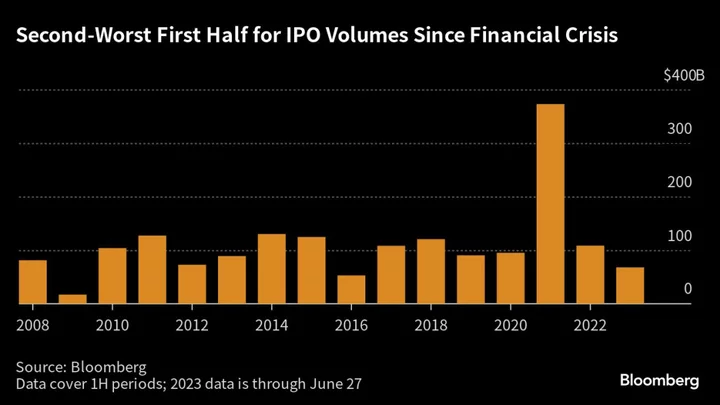The cyclone that devastated large parts of New Zealand’s North Island in February has been less inflationary than first feared, the nation’s central bank said.
The Reserve Bank had initially estimated that Cyclone Gabrielle would add 0.3 of a percentage point to inflation in both the first and second quarters, but has since downgraded that impact to just 0.1, Assistant Governor Karen Silk said in an interview Friday in Wellington. While the storm drove up food costs, it didn’t affect the prices of other goods such as used cars, she said.
The RBNZ surprised economists and investors Wednesday when, after delivering a 25 basis-point hike in the Official Cash Rate to 5.5%, it said its tightening cycle had ended. The central bank sees less upside inflation risk from surging immigration and fiscal policy than forecasters in the private sector, Silk said.
The RBNZ is also wary of over-tightening, with the full effect of its 525 basis points of rate hikes to date still to flow through to the economy, she said.
“We think we are at a level where we can just take a pause and watch how this evolves,” Silk said. “You do need to get to a point where you can actually watch some of that flow through to make sure that you don’t overdo things.”
At the same time, Silk warned markets not to start pricing in rate cuts too soon, saying transmission of monetary policy is a factor the RBNZ takes into account.
Its forecasts show the OCR staying at 5.5% until the third quarter of 2024. By contrast, investors expect the first cut to come by April next year, swaps data show.
“We’ve said we need to hold for an extended period of time to ensure core inflation comes down; it’s core inflation that we need to get down,” Silk said.
“We look at economic data, but we also look at transmission,” she said. “If at a wholesale level and most importantly at a retail level we start to see those things come off faster, then that’s one of the things we take into account when we think about where we set the OCR.”
While risks are currently balanced, the Monetary Policy Committee meets every six weeks to assess incoming data and will act if necessary, she said.
Silk said the drop in the New Zealand dollar after Wednesday’s decision was not unexpected.









